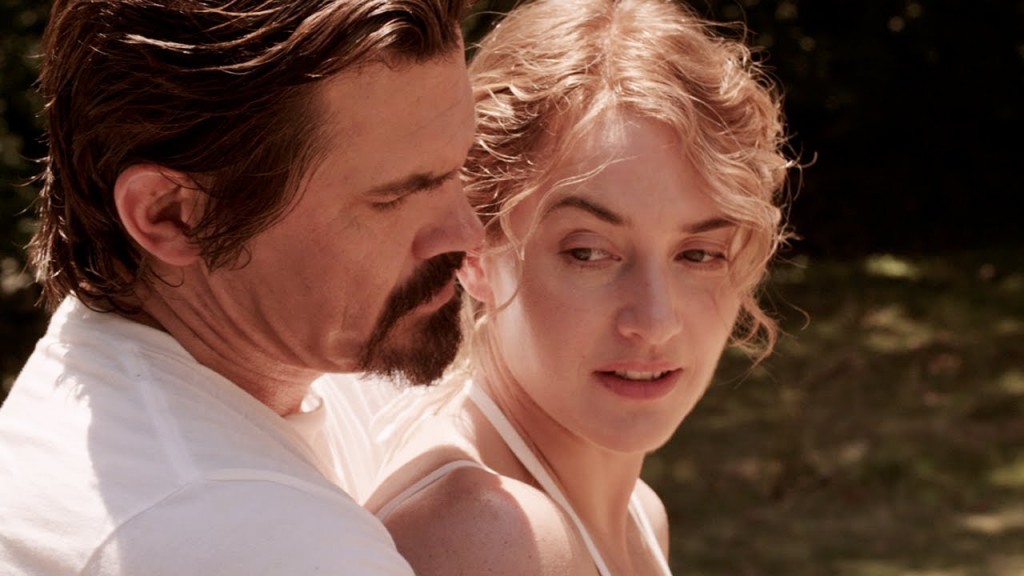Reviews
Movie review: “Labor Day”

Labor Day
dir. Jason Reitman
Release Date: Jan 31, 14
- 1
- 2
- 3
- 4
- 5
- 6
- 7
- 8
- 9
- 10
Labor Day might be the most dreamily filmed, eloquently acted take on an overwrought Nicholas Sparks weepie that American audiences may see for a long time. Jason Reitman, a filmmaker whose body of work to date scarcely makes a case for him as the best hand to tackle Joyce Maynard’s story, found two great actors for his material and never quite manages to get them to consistently fit into a story that frequently fails to pay off its many narrative strands and never knows exactly what it’s trying to do. Reitman also adapted the screenplay, which feels strange; the best and worst things about Labor Day, as it turns out, emerged from the same source.
The film concerns itself with a great many things, but the center is always Henry (Gattlin Griffith), a young man beginning to enter puberty and struggling to negotiate a tense familial situation. His father Gerald (Clark Gregg) walked out on his mother Adele (Kate Winslet) for a more stable family dynamic, leaving Adele a borderline-agoraphobic emotional wreck. Adele is one of those women whose soul clearly departed her body years ago, and whose continued existence is as much a matter of habit as anything else. Despite this, she does right by Henry, even if he’s often the one tasked with leaving the house for any necessities. The one time Adele manages to walk out the door, she and Henry are accosted by Frank (Josh Brolin), a bleeding ex-convict who strongly insists that they take him back to their house.
However, what starts as a hostage situation soon turns into a bizarre hybrid of a coming-of-age story, an Oedipal thriller, a bodice-ripping tale of passion and a delicate meditation on regret and loves lost. Labor Day is by far at its best when it shifts into the last of those gears; Reitman subtly metes out Frank’s backstory through elliptical, fleeting montages that make the film’s ultimate revelation about Frank’s crimes all the more poignant. Likewise, Adele’s bravura monologue at one point about the real driving force behind the dissolution of her marriage lends the film true emotional heft, albeit a bit late in the game when so much of what comes before is lacking in that same heft. At its best Labor Day understands, with zero condescension, how a broken heart is a very real thing and can invoke the kind of physical, mental and spiritual agony that drives people to God’s-honest madness.
At its worst, though, the film is also something of a mess. So much of the film is assembled out of small details, and some of those work, particularly in the case of Henry’s burgeoning sexuality; an exposed bra strap and the eyes of women on supermarket magazine covers constantly threaten to overwhelm his brain, on top of the strange man in his house who fills the halls with new sounds late at night. However, for every delicately observed moment like that, there are others in which JK Simmons’ well-meaning neighbor waltzes up to the house to offer some old-fashioned unearned tension, or an awkwardly precocious crush of Henry’s overexplains the movie to the audience, or an acquaintance of Adele’s leaves her disabled son at the house and ends up backhanding him in a fit. In all three cases this leads to virtually nothing at all, and too much of Labor Day can be explained in this fashion: intriguing roads that lead nowhere.
And the one that the film ultimately pursues, the story of Frank nursing Adele back to life, is the least interesting direction that Labor Day could have chosen out of its many possibilities. It’s disappointing to see Winslet and Brolin turning in such nuanced work when you realize after about an hour that the film is headed exactly where you think it’s headed, complete with a ham-fisted coda that offers up a clean emotional resolution and does a disservice to the film that preceded it. Labor Day distinctly aspires to more than it achieves, and you’ll likely leave wishing that it had gone in any other direction beside the one on which it ultimately lands.